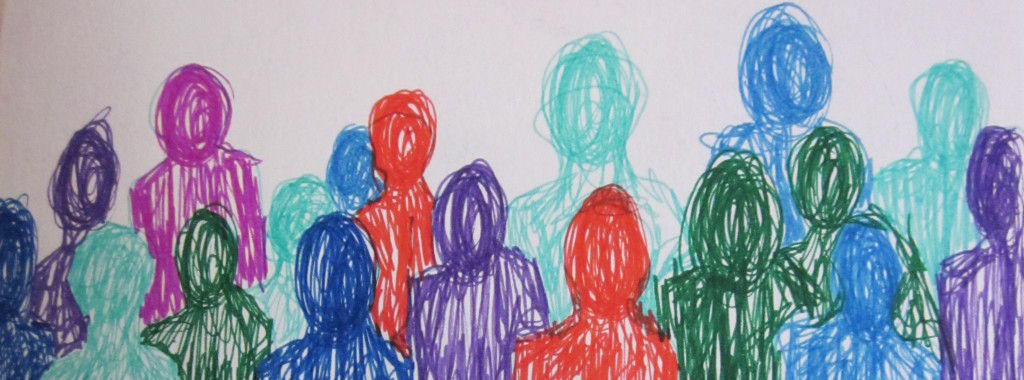We are at a family dinner: over kebab, parathas, and Pepsi, the conversation turns to what the appropriate diet for a diabetic should be. My aunt has been recently diagnosed; she is the one who asks the question. As one of the doctors in the family, I begin a well-rehearsed recital: I have given lifestyle advice so many times it is second nature. I talk about the importance of exercising; I sketch out a rough diet plan for her.
She nods along: if I have said it all before, she has heard it all before too. Maybe from another doctor; maybe from another rishtedaar (relative). Because in our culture; dinner parties and family visits are as often a source of medical knowledge as visits to the doctor are.
A lady, for example, goes to a doctor. She is lucky enough to catch him on a slow day: he has the time to provide lifestyle advice. If she has been diagnosed with hypertension; he might tell her to avoid salt. The patient is going to store this little nugget of information; and next time someone at a family dinner says “I have high blood pressure”, the lady will be able to tell them to avoid salt. In this way, a medical grapevine is established, and information is relayed forward.
With mental health, however, this relay of information does not happen.
A large reason for this is the lack of first-person narratives. Someone who has just been diagnosed with bipolar disorder, for example, will not be comfortable discussing this diagnosis at the dinner table.
They won’t talk about the significant difference medications have made to their lives; they won’t talk about the struggle they went through to find a psychiatrist they are comfortable with. They will stay silent on how therapy helps; they won’t say that even though it requires effort and determination, reestablishing a productive life is possible.
All of these experiences, which can potentially aid someone struggling in a similar situation, are lost. Circulation of information through society doesn’t happen. We are left with a gap in our collective knowledge, and we tend to seal these gaps with whatever information we have access to.
With mental illness, we fill in the cracks with a curious amalgamation of views based on media portrayals, religion, and our own daily experiences. So we believe in a mythical depiction of the mentally ill: in our minds, the face of mental illness is violent, threatening and unkempt. It is also the face of someone who has lost contact with God. We imagine someone who has stopped praying; and is, therefore, falling prey to negative thoughts. Yet others may try to mold the face of mental health so that it mirrors their own: they seek to break down the experiences of the mentally ill in terms they can relate to.
For example; imagine what a clinically depressed person is going through as similar in magnitude to their own experiences in dealing with day to day sadness. The resultant views expressed are ignorant, dismissive and loud.
On the one hand, we have the “Others have it worse” group. This group fails to distinguish everyday fluctuations in emotion from mental illness. So their advice to the mentally ill is what their advice to a friend having a bad day would be: focus on the positive.
They end up actively searching a patient’s life events for the cause of sadness: then passing judgment on whether they think the emotion is justified or not. Not only do they inadvertently end up ignoring a friend’s plea for help, but they also end up trivializing a patient’s suffering. This results from a failure to understand both the biological basis of mental illness; and the severity of the symptoms caused by it.
Then there is the group that actively dissuades the patient from seeking treatment with statements like “Muslims don’t need psychiatrists”. This group believes mental illness stems from lack of religious practice, and therefore cannot be treated through medical science. This thought process can serve as a barrier to seeking (often necessary) treatment; or can alternately cause people to look for healing in the wrong places. It also creates a perception of religious weakness; which adds another layer of taint to a group already weighed down by stigma.
The third group is one that does not seek to advise or explain: it just slips words associated with mental illness into everyday conversation. These words invariably have negative connotations: using the terms bipolar, and pagal as insults for example. This group generally has a derisive tone coloring their voice when a mentally ill person is discussed. Unfortunately, the medical community is as guilty of this as the layman.
The end result is a cycle. Absence of knowledge leads to inherently flawed views; someone dealing with mental illness makes an attempt to discuss what they are going through; they are answered with judgment and faulty advice: silence is reinforced.
To combat the dearth of first-person narratives it is essential that this cycle is broken.
Until a conscious effort is made to make people comfortable with sharing their experiences; patients and caregivers will not come forward with the considerable stores of information they possess. Our collective knowledge base will remain both limited and grossly inaccurate. A level of comfort that permits sharing can only be achieved by changing the tones of conversations regarding mental health.
We need to move away from conversations based on dogmatic advice; blanket statements; predetermined “correct approaches” and judgments. We need to move towards conversations that are more passive in nature: that is based on listening.
In the meanwhile: we are also responsible for our own education. We need to actively seek information via reading. We can only challenge our own negative perceptions of the mentally ill through increasing our own awareness.
To move forward; the face of mental illness as seen by society needs to be collectively redefined and reimagined: it needs to be reflective of the countless individuals who, while suffering from mental illness make profound contributions to our society. It is only when we are capable of acknowledging their suffering and worth as real that they will come forward.
Dr. Maria Iqbal





